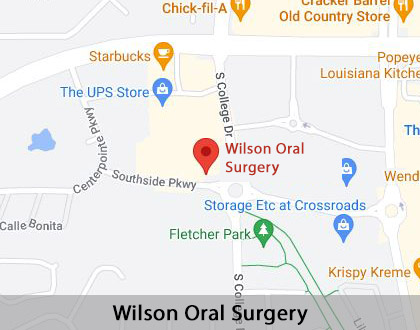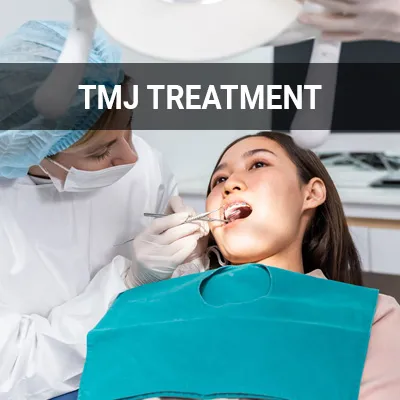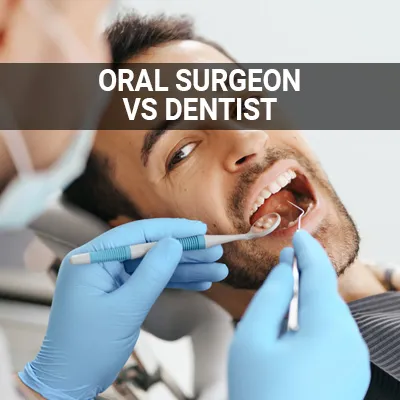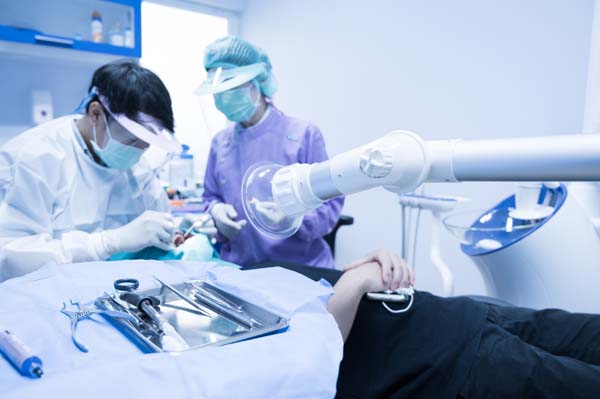Jaw Surgery Santa Maria, CA
Jaw surgery can help realign and correct several jaw irregularities. For some patients, braces alone are not enough to adequately improve a bad bite. Orthognathic jaw surgery realigns the bones of the upper jaw, lower jaw, or both to fix any malocclusion. In many cases, this procedure can also help enhance facial appearance.
Jaw surgery is available at Wilson Oral Surgery in Santa Maria and the surrounding area. Jaw problems can wear down your teeth and make everyday functions difficult. For many patients, correcting malocclusion with jaw surgery may positively impact self-esteem and oral health. Call us today at (805) 910-1213 to schedule an appointment.
Understanding Jaw Surgery
For most patients, braces are the first line of action when it comes to correcting any bite issues. However, some jaw irregularities are too severe to correct by orthodontic treatment alone. In such cases, jaw surgery, also known as orthognathic surgery, may be necessary. During this procedure, the surgeon realigns the jaws and teeth according to the patient’s needs.
Jaw surgery can be performed on one or both of the jaws, depending on the patient’s needs. Most patients will need to wear braces before and after the surgery until the healing and alignment are complete. Our oral surgeon will work together with the patient’s orthodontist and dentist to determine the best-individualized treatment plan from the start to the end of the process.
“Jaw surgery can be performed on one or both of the jaws, depending on the patient’s needs.”
Reasons for Jaw Surgery
According to the American Association of Oral and Maxillofacial Surgeons, more than enhance a patient’s appearance. In addition to addressing any facial imbalance, correcting malocclusions, such as crowded teeth, crossbites, overbites, underbites, and open bites, gives jaw surgery the potential to address the following issues:
- Bite fit or jaw closure issues
- Chronic jaw or temporomandibular (TMJ) pain
- Chronic mouth breathing
- Difficulty biting, chewing, or swallowing
- Excessive wear of the teeth
- Facial injury or congenital disabilities
- Inability to make the lips meet without straining
- Sleep apnea
Not everyone is a candidate for jaw surgery. Some patients may find that orthodontics, three-dimensional CT scanning, computer-guided treatment planning, and temporary orthodontic anchoring devices are enough to realign the jaws. Those whose conditions could still benefit from jaw surgery should acknowledge that the treatment is a long-term commitment that may take years to complete. Our oral surgeon will determine if this is the most effective treatment for the patient during a consultation.
“According to the American Association of Oral and Maxillofacial Surgeons, jaw surgery can do more than enhance a patient’s appearance.”
Types of Jaw Surgery
There are several types of jaw surgery. They can help those with jaws with alignment issues, making their jaw stick out too far or not far enough. These surgical procedures include:
- Maxillary osteotomy: A maxillary osteotomy addresses the upper jaw. It can fix a crossbite, open bite, or a receded upper jaw line. The surgeon will make an incision in the gum line and into the upper jaw to cut the upper jaw and move it into the desired position.
- Mandibular osteotomy: This type of jaw surgery can correct a severely receded lower jawbone. The oral surgeon will make an incision near the patient’s molars to cut into the jaw and move it into its new position. They will then place a small piece of plastic to guide and support the jaw, fixing it into place with plates and screws.
- Bilateral osteotomy: If a patient has an issue that affects both the upper and lower jaw, the oral surgeon may recommend a bilateral osteotomy. This is also known as double-jaw surgery.
- Genioplasty: The aim of genioplasty is to improve the appearance of a deficient chin, usually accompanied by a receding lower jaw. If a patient is getting a mandibular osteotomy, oral surgeons can also restructure the jaw with a genioplasty.
In addition, there are surgical options that address the symptoms of TMJ. Each option depends on the patient’s specific condition and how severe it is. For example, a person who is first diagnosed with TMJ may want to consider arthrocentesis, which is done by injecting fluid directly into the jaw joint. This injection can help wash out inflammation, reduce joint pressure, and restore some of the jaw’s range of motion.
Meanwhile, a patient with severe TMJ symptoms may need open-joint surgery, which removes bony growths and excess tissue, repositions or repairs the disc if damaged, or, in certain cases, replace the disc with an artificial option or a patient’s tissue. The surgeon may need to remove some of the diseased bone in the jaw joint or skull if it affects the bony structures of the joint.
“Each option depends on the patient’s specific condition and how severe it is.”
Check out what others are saying about our dental services on Yelp: Jaw Surgery in Santa Maria, CA
Preparing for Jaw Surgery
Typically, a patient’s orthodontist and oral surgeon will work together at least a year in advance to prepare the most effective treatment plan for the jaw surgery. During this time, patients should quit using tobacco products entirely. Preparation will involve taking X-rays, pictures, and models of the patient’s teeth. Further corrective procedures may also be necessary before the surgery, such as reshaping the teeth or covering them with crowns.
Patients can expect to be under general anesthesia for the operation and spend between two and four days in the hospital. As such, arrangements should be made well in advance to have a responsible adult drive the patient to and from the hospital. Additionally, patients should stock up on liquid foods before the day of the operation, as they will need to stick to a liquid diet for the first few weeks of recovery. Our oral surgeons will give patients further instructions regarding what not to eat or drink before surgery and how to proceed with any other medications they are taking.
“Our oral surgeons will give patients further instructions regarding what not to eat or drink before surgery and how to proceed with any other medications they are taking.”
Questions Answered on This Page
Q. Why would I need jaw surgery?
Q. What are the different types of jaw surgery?
Q. How do I prepare for jaw surgery?
Q. How do I recover from jaw surgery?
People Also Ask
Q. What are the possible symptoms of TMD?
Q. How does one learn about oral surgeons in their area?
Recovering from Jaw Surgery
Braces will need to be kept on until initial jaw healing has been completed, usually around six weeks after surgery. Complete healing may take up to 12 weeks, although this varies from person to person. Their orthodontist may also fit the patient with retainers to maintain tooth position. Our oral surgeon and team will work in tandem with the patient’s oral health care team to ensure the patient receives the proper care and healthy recovery process.
Patients should spend at least a week recovering at home after being discharged from the hospital. Gradually, it will feel normal to return to normal eating and oral hygiene habits throughout the healing process. There will be one or more crucial post-operative exams with the surgeon during the two to six-week period following surgery.
Sometime during the six to 12-month mark, patients will most likely have completed the entire orthodontic treatment. Throughout this time, the patient should have follow-up appointments with their surgeon and orthodontist as needed while maintaining their oral care routine.
“Gradually, it will feel normal to return to normal eating and oral hygiene habits throughout the healing process.”
Frequently Asked Questions
Q. Will I need to get any sutures removed after jaw surgery?
A. In most cases, any sutures made during your jaw surgery will be absorbable, meaning they will not need to be removed after your surgery. However, you will still need to see the oral surgeon for follow-up appointments.
Q. How old do you have to be to get jaw surgery?
A. In most cases, surgeons will not perform jaw surgery on anyone whose jaws have yet to reach skeletal maturity. For males, this is usually around ages 17 to 21; for females, this is usually around ages 14 to 16. However, surgeons will sometimes operate on children with particularly severe jaw discrepancies or facial asymmetries.
Q. How long will it take me to get back to work or school after jaw surgery?
A. Many patients take as little as a week off from work or school. However, no two recoveries are the same. Additionally, some jaw surgeries are more involved than others. Your surgeon is the person best qualified to tell you what you can expect.
Q. What can I eat after jaw surgery?
A. For the first two weeks after your jaw surgery, your teeth will be bound together by elastics or wires while the bone segments and incisions are healing. During this time, you will need to maintain a full liquid or pureed diet. After these two weeks, you can move on slowly to a soft, no- or low-chew mechanical diet. Speak to our oral surgeon to learn more.
Q. Will my insurance cover jaw surgery?
A. The answer to this varies on a case-by-case basis. Speaking directly to your insurance company and surgeon is the best way to know what to expect. We can go over more details during a consultation.
Start Feeling Better – Visit Us Today
By visiting us as soon as possible, our team can help get you the professional treatment you need. Instead of waiting around and allowing the symptoms to get worse, we can provide you with treatment options.
Schedule an Appointment Today
Many patients find that jaw surgery improves their dental functions and boosts their general self-confidence. At Wilson Oral Surgery, our oral surgeon can perform a thorough dental exam and determine whether or not jaw surgery is right for you. Call us today at 805-910-1213 to schedule an appointment.
Helpful Related Links
- American Dental Association (ADA). Glossary of Dental Clinical Terms. 2023
- American Academy of Cosmetic Dentistry® (AACD). Home Page. 2023
- American Academy of Maxillofacial Prosthetics. American Academy of Maxillofacial Prosthetics. 2023
- American Association of Oral and Maxillofacial Surgeons. American Association of Oral and Maxillofacial Surgeons. 2023
- American College of Oral and Maxillofacial Surgery. American College of Oral and Maxillofacial Surgery. 2023
- National Cancer Institute (NCI). National Cancer Institute (NCI). 2023
- WebMD. WebMD’s Oral Care Guide. 2023
About our business, license, and website security
- Wilson Oral Surgery was established in 1990.
- We accept the following payment methods: American Express, Cash, Check, Discover, MasterCard, and Visa
- We serve patients from the following counties: Santa Barbara County
- We serve patients from the following cities: Santa Maria, Nipomo, Orcutt, Betteravia, Garey, Los Alamos, and Guadalupe
- CA (License #53295). View License Information and Specifics
- National Provider Identifier Database (1578736013). View NPI Registry Information
- Norton Safe Web. View Details
- Trend Micro Site Safety Center. View Details
Back to top of Jaw Surgery










